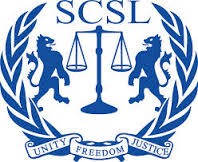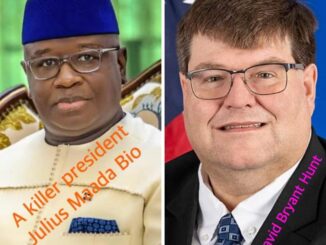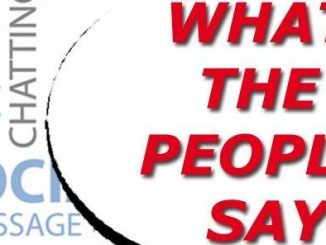By Joseph S. Sherman, Washington, DC
It has been an eventful year for party politics in Sierra Leone. Splits, infighting and dissension have been the order of the day in the two main political parties (SLPP and APC). While the APC is yet to face challenges from dissident groups after the just ended convention in Port Loko, where Ernest Bai Koroma was unanimously elected as party chairman, and presidential candidate for the 2007 elections. The SLPP on the other hand continues to suffer a generation gap between the old guard and younger generations, especially with the election of incumbent Vice President Berewa as presidential candidate in 2007. The outcome of the SLPP convention in Makeni has resulted in the defection of losers from the original party to a new party that is yet to be announced.
While many of the deep-seated problems of Sierra Leone are not solely of its making, party politics have exacerbated divisions, weakened the electorate, and deepened the economic malaise in Sierra Leone since independence. The principal responsibility of turning away from the present political and economic uncertainty rests with politicians. A serious commitment to reversing this disastrous course will require a reconsideration of losers in the just ended conventions to work with their political parties in the interest of the well being of Sierra Leone.
Party system fragmentation is widely associated with a variety of political and economic disadvantages. Experienced has shown that countries with high levels of party level fragmentation are commonly thought to be less governable, more prone to economic crisis and democratic breakdown. These problems stems largely from the fact that after elections the ruling party is less likely to control a majority of the seats in parliament. To enact legislation, the executive must seek the support of other parties, and such support is often difficult or expensive to solicit.
It is an undisputable fact that the issue of big money in party politics is not new as in the case of allegations made by losers of the just ended SLPP convention in Makeni. Politics in Sierra Leone from time immemorial has become “commercialized” as the popular culture and education. The few big men or more so, the incumbent can influence the electorate with their “deep pockets”, thus influencing and changing party politics and leadership. An overwhelming number of Sierra Leoneans at all levels of society support the thrust for changes in the political leadership in the country come 2007. However, how can they bury the old when they do not give birth to the new?
It should be noted that for multiparty democracy to prevail in Sierra Leone an atmosphere free of coercion of the electorate to make their choice of leadership devoid of manipulation of all forms should exist. Leadership cannot be imposed lest it produces a different variety of politics.
As for the losers of the just ended party conventions, reversing the results or political attitudes requires time, as well as a good measure of education and information about democracy. Therefore, to avoid political fragmentation and state collapse the results and outcome of the conventions should be used as model to develop strategies for success in future political aspirations.
About the author: Joseph S. Sherman (MIP, MSA) is the Director of a Multi-Cultural Adult Education in Washington, DC




Leave a Reply